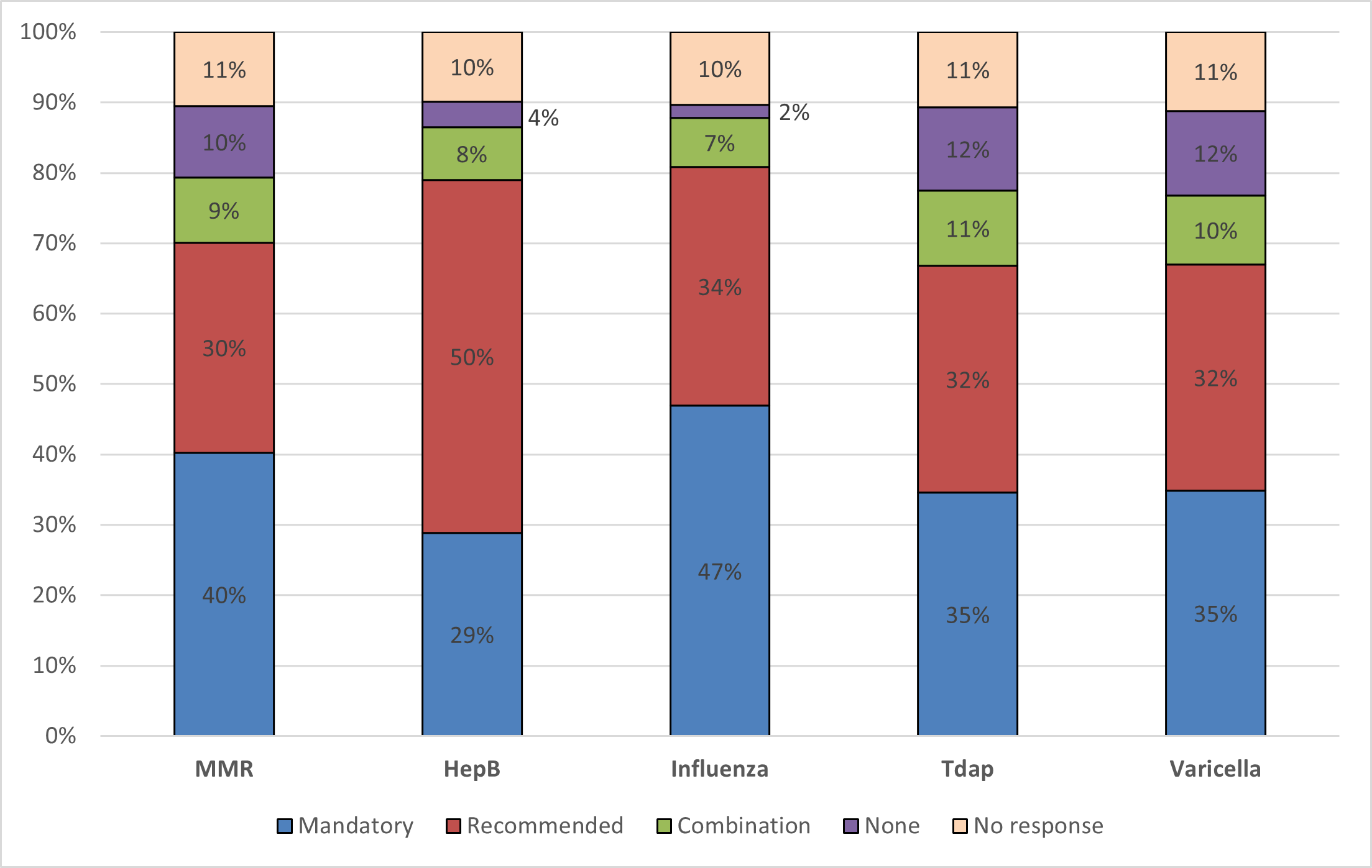Hospital Survey
Full Report of Immunization Data from the Annual Hospital Survey, 2021
Source: Annual Survey of Hospitals, DSHS Center for Health Statistics
The 2021 Annual Survey of Hospitals is a cooperative survey between the Texas Department of State Health Services (DSHS), the American Hospital Association (AHA), and the Texas Hospital Association (THA). The survey is sent to all licensed hospitals in Texas. It collects data on finances, utilization, and other measures that hospitals are required by Texas law to report. Questions about immunization policies and practices are included each year.
Immunization questions on the hospital survey fall into several categories including:
- Employee Immunization Policies
- Perinatal Hepatitis B Prevention
- Pertussis Immunization
- Participation in the Texas Vaccines for Children (TVFC) program
- Obtaining consent for the statewide immunization registry (ImmTrac2) at birth
In the 2021 Annual Survey of Hospitals, the response rate for the survey was 94 percent, resulting in data from 599 hospitals. All data were self-reported by the hospitals. Analysis was also performed on a subset of 220 birthing hospitals. Another sub-analysis looked at the 74 hospitals that self-reported providing outpatient prenatal services.
Results
(View Full Report for more details)
- 77.9 percent of women were screened at delivery for Hepatitis B Surface Antigen.
- 60.3 percent of infants reportedly received the recommended first dose of Hepatitis B vaccine within 24 hours of birth.
- 82.7 percent had a written policy to provide new parents with immunization information prior to hospital discharge.
- 55.9 percent of birthing hospitals said they were registered as Texas Vaccines for Children providers.
- 90.9 percent of birthing hospitals offered new parents the opportunity to grant consent for immunization registry participation, or request exclusion from the registry, during birth certification registration.
- 82.4 percent of hospitals that reported providing outpatient prenatal clinic services had a policy and standing orders to vaccinate all pregnant women with Tdap.
Percentage of Hospitals with an Employee Vaccination Policy by Policy Type and Vaccine, Annual Survey of Hospitals 2021
